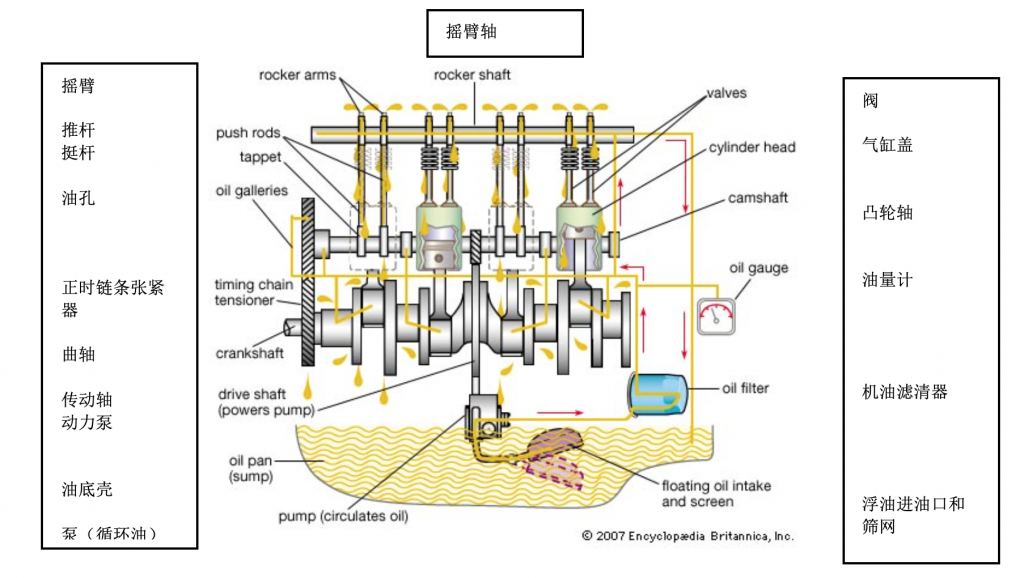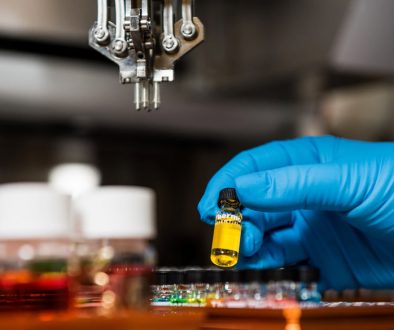5: 润滑油基础知识:发动机油的工作方式
EVER WONDERED HOW A LUBRICANT HELPS AN ENGINE PERFORM? HERE’S A QUICK TOUR, PLUS AN OVERVIEW OF A LUBRICANT’S MOST IMPORTANT FUNCTIONS.
是否想过润滑油助力发动机工作的方式?以下为润滑油快速导览及其最重要功能概述。
In the series on the basics of lubricants, we’ve shown you which ones are important to know, what their main function is, what they are composed of and what functions the different “ingredients” serve (like base oils and additives ).
在润滑油基础知识的系列文章中,我们向您介绍了关于润滑油需要了解的重要内容、润滑油的主要功能、润滑油的组成以及不同“成分”(如基础油和添加剂)的作用。
This time, we’re going to get a little bit more practical: we’ll show you how a lubricant effectively travels through an engine. Then, we’ll walk you through the most important functions of a lubricant.
我们在这一篇文章中将更加具体向您介绍润滑油在发动机中的工作情况。然后,我们将向您介绍润滑油最重要的功能。
How oil flows through an engine
润滑油在发动机的流动

An engine is a highly complicated piece of machinery. But to paint the larger picture, here’s how it works in terms of lubrication:
发动机是一种非常复杂的机械。但为了进行更大画面的介绍,我们来看看润滑油在发动机中的工作情况:
- The oil pump picks up oil from the oil pan (both in the lower part of the picture), where the oil is stored.
- The pump sends the oil up to the main bearings of the crankshaft (in the lower middle), which converts linear energy into rotational energy.
- From there, the oil moves through oil holes drilled in the crankshaft, to the rod bearings, and then through an oil line to the cylinder head (in the upper middle).
- Through the oil galleries, it flows to the camshaft bearings and valves.
- The pistons, rings and pins (not indicated in the picture) receive oil thrown off the connecting rod-bearings.
- 油泵从存储润滑油的油盘(都在图片的下半部分)中汲取油。
- 油泵将油输送到发动机曲轴的主轴承(中下部),将轴向能转换为旋转能。
- 随后,润滑油通过曲轴上的油孔流到杆轴承,再通过油管流到气缸盖(中上部)。
- 润滑油通过油道流向凸轮轴轴承和阀门。
- 活塞、环和销(图中未显示)接收连杆轴承所抛出的油。
Why is it important to lubricate an engine?
给发动机上润滑油有何重要性?
The three major functions that lubricants perform are:
- Reducing friction
- cooling
- and cleaning
润滑油的三大主要功能是:
- 减少摩擦
- 冷却
- 以及清洁
Reducing friction is what most people would think of when asked what a lubricant does. With all its parts that move quickly and very close to each other, an engine would not survive for long without a lubricant to ‘smoothen things up’.
减少摩擦是多数人在被问到润滑油的功能时会想到的。发动机的所有部件运动都很快,相互之间十分接近,因此如果没有润滑油来“理顺”,发动机将无法长期工作。
Cooling is necessary because a working engine heats up to high temperatures. Without a lubricant, it would break down from the heat it produces itself!
冷却必不可少,因为发动机工作时会产生高温。如果没有润滑油,发动机就会因为自身所产生的热量而被损坏。
Cleaning concerns the impurities that exist in an engine. Combustion, the process that takes place inside an engine, produces soot and contaminants. Without lubricants these would form large deposits in the oil block passage, hindering the engine’s performance as a result.
清洁是指清洁发动机中存在的杂质。发动机内部发生的燃烧过程会产生烟灰和污染物。如果没有润滑油,这些杂质会在油块通道中形成大量沉淀,阻碍发动机的性能。
Additives make lubricants multi-functional But lubricants have more functions.
添加剂让润滑油具备了多种功能,但润滑油还有更多的功能。
Specialized additives help an engine maintain its performance, too. Let’s take a look at three functions additives perform:
专用添加剂也有助于保证发动机的性能。我们来了解一下发动机的三大功能:
- Control acids and corrosion
An engine collects acids. These can cause major damage in the form of corrosion, and a decrease in performance or even general engine failure. Lubricants contain detergents which neutralize the acid. This way, it prevents rust, especially on the bearings. Some high-performance lubricants additionally contain corrosion inhibitors to protect the soft metals.
1.酸和腐蚀的控制
发动机会聚集酸。这就会形成腐蚀类严重损坏,性能下降甚至发动机一般故障。润滑油中含有中和酸的净化剂。这样就可防止生锈,尤其是轴承生锈。有些高性能润滑油还含有保护软金属的腐蚀抑制剂。
- Manage viscosity
The viscosity is the “thickness” of a lubricant. It is key to ensure that it is consistent — if a lubricant’s viscosity changes, the pumps won’t function well. A consistent viscosity is maintained through the use of so-called viscosity index improvers. Even when the temperature changes and an oil would normally become thicker or thinner, this additive keeps the viscosity constant.
2.粘度管理
粘度就是润滑油的“稠密度”。关键是确保粘度的一致性,润滑油粘度的变化会造成油泵工作异常。采用所谓的粘度指数改良剂就可保证粘度的一致性。即使当温度发生变化,润滑油往往会变得更加稠密或者更加稀松时,粘度指数改良剂可以确保粘度的一致性。
- Minimize oxidation
The inside of a working engine becomes burning hot, and this causes oxidation to happen faster. (Oxidation is when a material reacts with oxygen and gets damaged – rusting iron is the best-known example). As you can imagine, the oxidation of engine parts is not a good thing. It can cause sludge to build up and the viscosity to increase. Luckily, we have additives called antioxidants that do the job.
3.最大限度降低氧化
当工作引擎的内部灼热时,会更快发生氧化。(氧化是指材料与氧反应后受到损害,最常见的例子就是铁锈)。可以想象,发动机部件的氧化并不是好事。氧化会导致油泥聚集,粘度增加。幸运的是,称为抗氧化剂的添加剂可以解决此问题。
In short:
- Engine oil flows through an engine, lubricating every part.
- The three major functions that lubricants perform are: reducing friction, cooling, and cleaning.
- Specialised additives help an engine maintain its performance, too.
- Additives, among other functions, control acids and corrosion, manage viscosity, and minimize oxidation.
总结:
- 发动机油在发动机中流动,润滑每个部件。
- 润滑油的三大主要功能是减少摩擦、冷却和清洁。
- 专用添加剂也有助于保证发动机的性能。
- 添加剂和其他功能可以控制酸和腐蚀、管理粘度并最大限度降低氧化。




